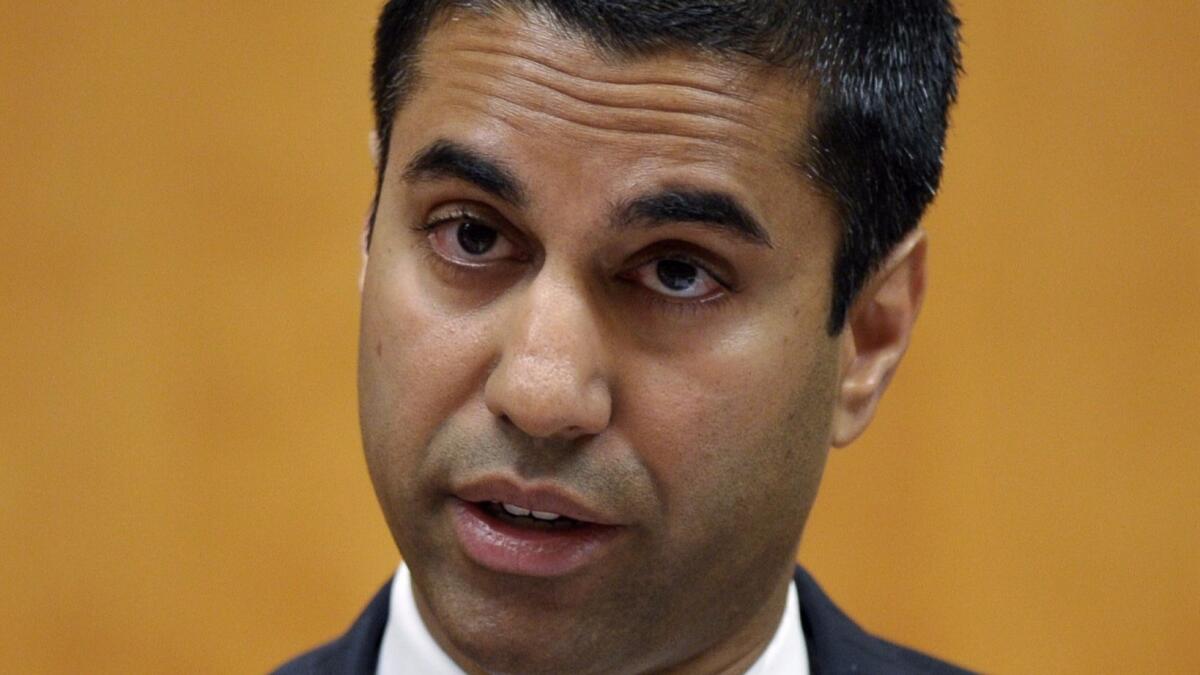FCC is stopping 9 companies from providing subsidized Internet to the poor

Regulators are telling nine companies they won’t be allowed to participate in a federal program meant to help them provide affordable Internet access to low-income consumers — weeks after those companies were given the green light.
The move, announced Friday by Federal Communications Commission Chairman Ajit Pai, reverses a decision by his Democratic predecessor, Tom Wheeler, and undercuts the companies’ ability to provide low-cost Internet access to poorer Americans. In a statement, Pai called the initial decisions a form of “midnight regulation.”
“These last-minute actions, which did not enjoy the support of the majority of commissioners at the time they were taken, should not bind us going forward,” he said.
The program, known as Lifeline, provides registered households with a $9.25-a-month credit, which can then be used to buy home Internet service. As many as 13 million Americans who do not have broadband service at home may be eligible for Lifeline, the FCC has found. Roughly 900 service providers participate in the Lifeline program.
For Kajeet Inc., one of the companies that was initially granted permission to provide service through Lifeline, the news comes as a blow.
“I’m most concerned about the children we serve,” Kajeet founder Daniel Neal said. “We partner with school districts — 41 states and the District of Columbia — to provide educational broadband so that poor kids can do their homework.”
Since becoming FCC chairman last month, Pai has made closing the digital divide a central axis of his policy agenda. Although the vast majority of Americans have access to Internet service, there remain distinct gaps in U.S. broadband penetration, particularly among seniors, minorities and the poor. In his first address to FCC staff, Pai singled out the digital divide as one of the signature issues he hoped to address.
But Friday’s move cuts against those remarks, according to some consumer advocates who argue the decision will make it harder for low-income Americans to access the Internet.
“The most obvious fact in our society is that high-speed Internet is astronomically expensive for the middle class and down,” said Gene Kimmelman, president of the consumer advocacy group Public Knowledge. “So in any way limiting the Lifeline program, at this moment in time, exacerbates the digital divide. It doesn’t address it in any positive way.”
As many as eight other companies are also subject to the FCC’s reversal, according to the text of the decision. The agency can freely reconsider decisions it’s made on the matter within 30 days of making them. Four of the nine approvals were revoked in response to a complaint; the other five were revoked within the 30-day window.
Until last year, Lifeline recipients could apply their federal benefit only toward landline and mobile voice service. Significant changes to the program under Wheeler let beneficiaries, for the first time, use their credits to purchase broadband Internet. The expansion was opposed by Pai and other Republican officials, who argued that the measure did not do enough to rein in potential costs or to control waste, fraud and abuse. (Democrats claimed that recent reforms to the program had helped cut down on the latter.)
Revoking the nine approvals “would promote program integrity by providing the [FCC] with additional time to consider measures that might be necessary to prevent further waste, fraud, and abuse in the Lifeline program,” the decision said.
By stopping companies such as Kajeet from accessing the Lifeline program, Pai may be signaling his intention to apply more restrictions to the program, policy analysts said. One such restriction could be a strict cap on the program’s budget, which is indirectly funded through fees in the bills of telephone customers. But, they added, those program changes may likely require a formal rulemaking at the FCC, a process that could take months.
Fung writes for the Washington Post.
ALSO
Everything we learned from Snap Inc.’s IPO filing
Here’s what’s at stake as Trump moves to unravel Dodd-Frank
Trump and Congress may make it easier to get drugs approved — even if the drugs don’t work






